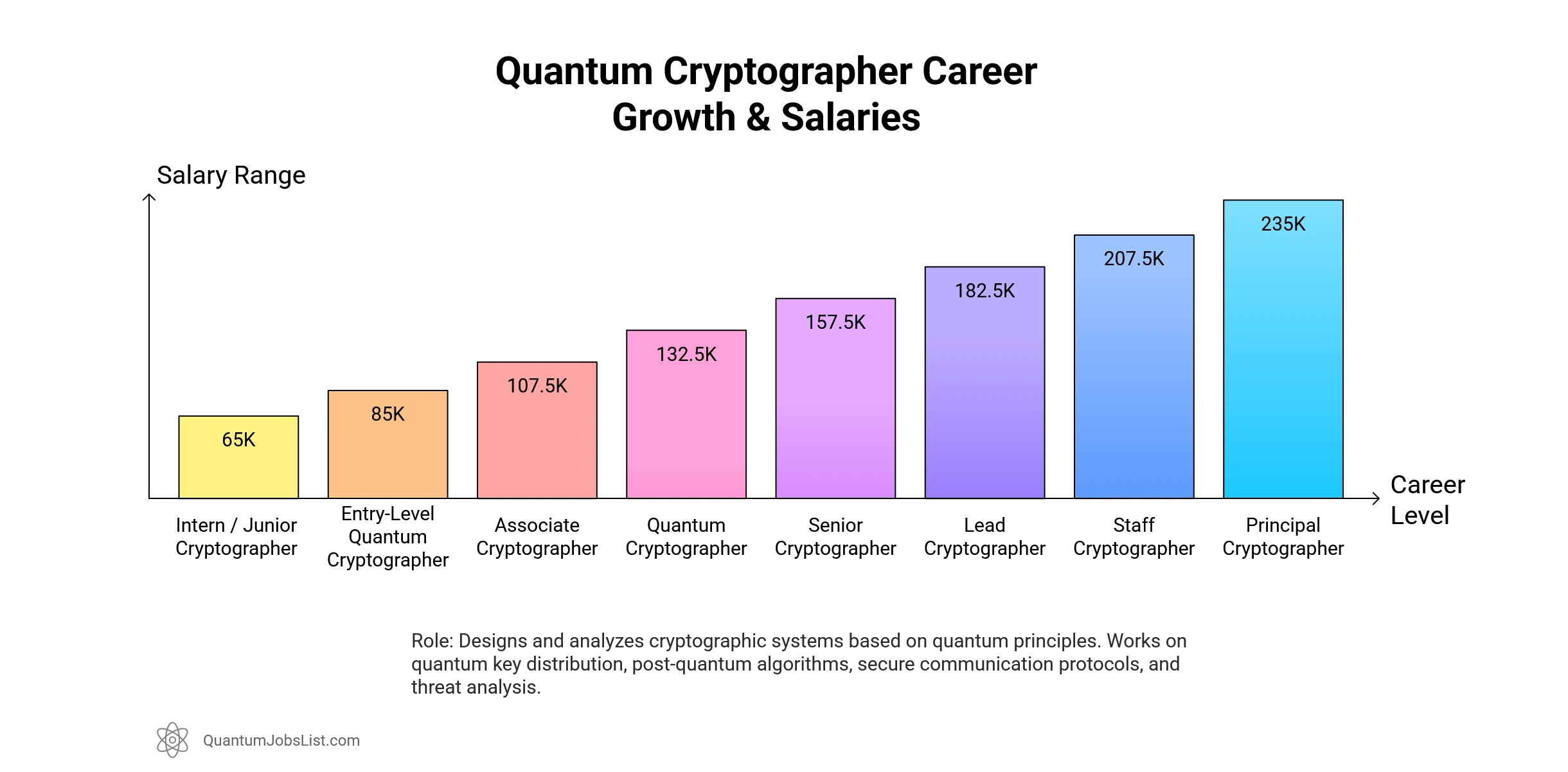A Quantum Cryptographer creates strategies to secure and develop systems to defend against quantum decryption threats. Quantum Cryptographers creates methods for secure communication employing the distribution of quantum keys. Cryptographers also devise systems for post-quantum cryptography.
Global demand will be the main factor affecting salary differences in the cryptocurrency market. Based on the industry report of 2025, Quantum Cryptographers will be paid between $90,000 and $180,000. The function of quantum cryptography has gained significant value to the industry since the predictive models show that quantum cryptography will be able to break the current encryption methods within a decade, primarily the RSA and ECC. The current estimated number of quantum cryptographers in the world is between 2,000 and 2,500, and the main union of employees is the public treasury and financial institutions.

What is the average base salary?
Min. Qualifications
What You Need to Know
What does a Quantum Cryptographer do?
A Quantum Cryptographer develops quantum-resistant encryption algorithms, implements quantum key distribution systems. A Cryptographer protects data from future quantum computer attacks that could break current security standards.
What qualifications are needed to become a Quantum Cryptographer?
A master's or PhD in Mathematics, Computer Science, or Cryptography is required. Expertise in cryptographic protocols, quantum mechanics, and experience with post-quantum cryptography standards are good to have.
What is the average salary for a Quantum Cryptographer?
Quantum Cryptographers earn $90,000-$180,000 a year globally. American positions average $145,000, European roles around €116,000, while remote positions are at $137,000 annually.
Why are Quantum Cryptographers in high demand?
Quantum computers will break current encryption like RSA within years, so organizations urgently need Quantum Cryptographers to transition to quantum-safe security systems before "Q-day" occurs.
More Quantum Job Salaries
Cryogenic Engineer (Quantum Systems)
Builds ultra-low temperature systems for quantum hardware, earning $90,000-$185,000+.

Quantum Control Engineer
Designs and tunes quantum hardware control systems, earning $95,000-$190,000+.

Quantum DevOps Engineer
Manages quantum infrastructure and pipelines, earning $90,000-$180,000+.

Quantum Solutions Architect
Designs enterprise-ready quantum systems, earning $100,000-$210,000+.

Quantum Product Manager
Leads quantum product vision and delivery, earning $100,000-$220,000+.

Quantum Technical Writer
Creates documentation, and technical content for quantum computing products and research.


.svg)
.svg)

